#eurydice
Text
#orpheus and eurydice#uquiz#uquiz link#greek my#greek mythology#hadestown#this is not a hadestown quiz but like.#surely they would enjoy this#orpheus#eurydice#poetry of a sort
91 notes
·
View notes
Text

Wanted to make my own version of this
21 notes
·
View notes
Text
ghostflower as orpheus & eurydice in hadestown
i think i can talk about this here, BUT i yapped about em in twitter before:
gwen and eurydice: https://twitter.com/erdcstacy/status/1769184881387679897?s=46
miles and orpheus: https://twitter.com/erdcstacy/status/1769556272360370344?s=46
art by: @carol_beloved in twitter. it’s ✨stunning✨

#across the spiderverse#ghostflower#gwiles#gwen stacy#miles morales#hadestown#orpheus#eurydice#ghostflower is hadestown coded
24 notes
·
View notes
Text

― Ovid, Metamorphoses
9K notes
·
View notes
Text
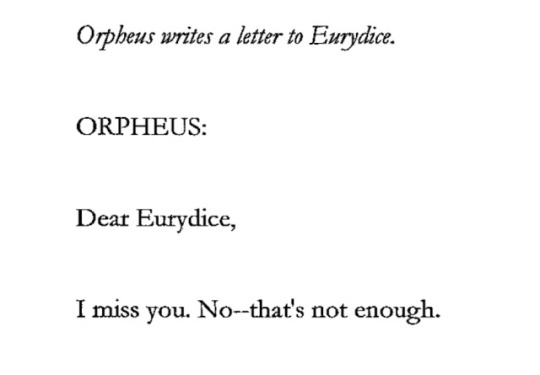
#poetry#dark academia#dark acadamia aesthetic#dark aesthetic#light academia#book quotes#quotes#lovecore#romantic academia#orpheus#eurydice
7K notes
·
View notes
Text
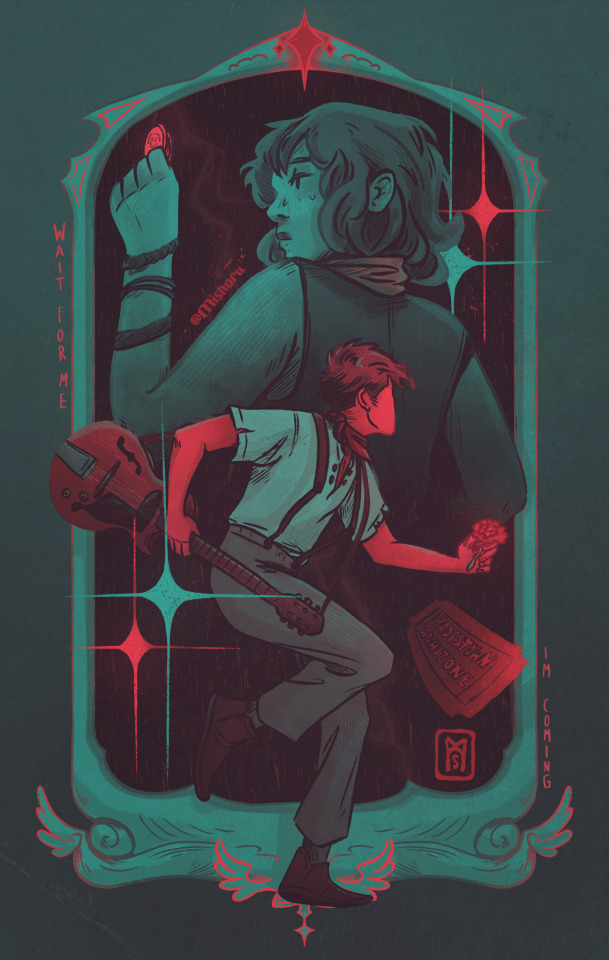
It's an old tale
#Hello tumblr I am alive#illustration#art#procreate#I haven't made new spn art but look at what I've been doing meanwhile#fanart#hadestown#orpheus#eurydice#hadestown fanart#orpheus and eurydice#orpheus and euridyce#orphydice#musical fanart#greek mythology#greek tragedy#greek gods
6K notes
·
View notes
Text
In the past I've shared other people's musings about the different interpretations of the myth of Orpheus and Eurydice. Namely, why Orpheus looks back at Eurydice, even though he knows it means he'll lose her forever. So many people seem to think they've found the one true explanation of the myth. But to me, the beauty of myths is that they have many possible meanings.
So I thought I would share a list of every interpretation I know, from every serious adaptation of the story and every analysis I've ever heard or read, of why Orpheus looks back.
One interpretation – advocated by Monteverdi's opera, for example – is that the backward glance represents excessive passion and a fatal lack of self-control. Orpheus loves Eurydice to such excess that he tries to defy the laws of nature by bringing her back from the dead, yet that very same passion dooms his quest fo fail, because he can't resist the temptation to look back at her.
He can also be seen as succumbing to that classic "tragic flaw" of hubris, excessive pride. Because his music and his love conquer the Underworld, it might be that he makes the mistake of thinking he's entirely above divine law, and fatally allows himself to break the one rule that Hades and Persephone set for him.
Then there are the versions where his flaw is his lack of faith, because he looks back out of doubt that Eurydice is really there. I think there are three possible interpretations of this scenario, which can each work alone or else co-exist with each other. From what I've read about Hadestown, it sounds as if it combines all three.
In one interpretation, he doubts Hades and Persephone's promise. Will they really give Eurydice back to him, or is it all a cruel trick? In this case, the message seems to be a warning to trust in the gods; if you doubt their blessings, you might lose them.
Another perspective is that he doubts Eurydice. Does she love him enough to follow him? In this case, the warning is that romantic love can't survive unless the lovers trust each other. I'm thinking of Moulin Rouge!, which is ostensibly based on the Orpheus myth, and which uses Christian's jealousy as its equivalent of Orpheus's fatal doubt and explicitly states "Where there is no trust, there is no love."
The third variation is that he doubts himself. Could his music really have the power to sway the Underworld? The message in this version would be that self-doubt can sabotage all our best efforts.
But all of the above interpretations revolve around the concept that Orpheus looks back because of a tragic flaw, which wasn't necessarily the view of Virgil, the earliest known recorder of the myth. Virgil wrote that Orpheus's backward glance was "A pardonable offense, if the spirits knew how to pardon."
In some versions, when the upper world comes into Orpheus's view, he thinks his journey is over. In this moment, he's so ecstatic and so eager to finally see Eurydice that he unthinkingly turns around an instant too soon, either just before he reaches the threshold or when he's already crossed it but Eurydice is still a few steps behind him. In this scenario, it isn't a personal flaw that makes him look back, but just a moment of passion-fueled carelessness, and the fact that it costs him Eurydice shows the pitilessness of the Underworld.
In other versions, concern for Eurydice makes him look back. Sometimes he looks back because the upward path is steep and rocky, and Eurydice is still limping from her snakebite, so he knows she must be struggling, in some versions he even hears her stumble, and he finally can't resist turning around to help her. Or more cruelly, in other versions – for example, in Gluck's opera – Eurydice doesn't know that Orpheus is forbidden to look back at her, and Orpheus is also forbidden to tell her. So she's distraught that her husband seems to be coldly ignoring her and begs him to look at her until he can't bear her anguish anymore.
These versions highlight the harshness of the Underworld's law, and Orpheus's failure to comply with it seems natural and even inevitable. The message here seems to be that death is pitiless and irreversible: a demigod hero might come close to conquering it, but through little or no fault of his own, he's bound to fail in the end.
Another interpretation I've read is that Orpheus's backward glance represents the nature of grief. We can't help but look back on our memories of our dead loved ones, even though it means feeling the pain of loss all over again.
Then there's the interpretation that Orpheus chooses his memory of Eurydice, represented by the backward glance, rather than a future with a living Eurydice. "The poet's choice," as Portrait of a Lady on Fire puts it. In this reading, Orpheus looks back because he realizes he would rather preserve his memory of their youthful, blissful love, just as it was when she died, than face a future of growing older, the difficulties of married life, and the possibility that their love will fade. That's the slightly more sympathetic version. In the version that makes Orpheus more egotistical, he prefers the idealized memory to the real woman because the memory is entirely his possession, in a way that a living wife with her own will could never be, and will never distract him from his music, but can only inspire it.
Then there are the modern feminist interpretations, also alluded to in Portrait of a Lady on Fire but seen in several female-authored adaptations of the myth too, where Eurydice provokes Orpheus into looking back because she wants to stay in the Underworld. The viewpoint kinder to Orpheus is that Eurydice also wants to preserve their love just as it was, youthful, passionate, and blissful, rather than subject it to the ravages of time and the hardships of life. The variation less sympathetic to Orpheus is that Euyridice was at peace in death, in some versions she drank from the river Lethe and doesn't even remember Orpheus, his attempt to take her back is selfish, and she prefers to be her own free woman than be bound to him forever and literally only live for his sake.
With that interpretation in mind, I'm surprised I've never read yet another variation. I can imagine a version where, as Orpheus walks up the path toward the living world, he realizes he's being selfish: Eurydice was happy and at peace in the Elysian Fields, she doesn't even remember him because she drank from Lethe, and she's only following him now because Hades and Persephone have forced her to do so. So he finally looks back out of selfless love, to let her go. Maybe I should write this retelling myself.
Are any of these interpretations – or any others – the "true" or "definitive" reason why Orpheus looks back? I don't think so at all. The fact that they all exist and can all ring true says something valuable about the nature of mythology.
#mythology#greek mythology#orpheus#eurydice#orpheus and eurydice#analysis#interpretations#adaptations#long
23K notes
·
View notes
Text
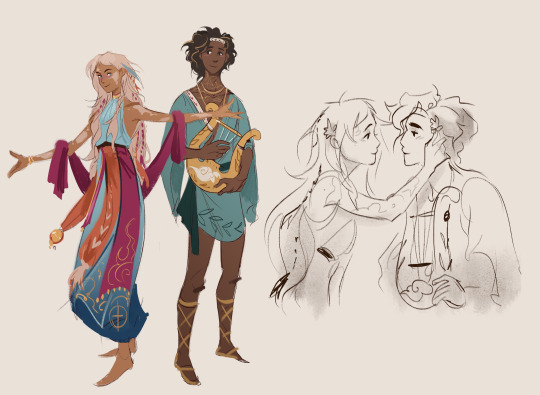
My character design for Orpheus and Eurydice :D
I tried making them look like a hippie couple, thought it'd match the vibes of a musician and his muse. I enjoyed drawing them so much, so I might post some more doodles of them in the future :D
#digital art#art#greek myths#character design#orpheus#eurydice#orpheus and euridyce#greek mythology art
2K notes
·
View notes
Text

when worlds eurydices collide


bonus individuals
#eurydice#hades game#hades supergiant#hadestown#fanart#my art#hehe i love shading like this#they also both sing which is cool
3K notes
·
View notes
Text
If you see this in the wild please reblog the following version instead:
#greek mythology#orpheus#eurydice#orpheus and eurydice#yes i just relistened to hadestown. how *hopeful* she sounds right before he turns around;;;;; dhshsjshgsgsg#poll
950 notes
·
View notes
Text

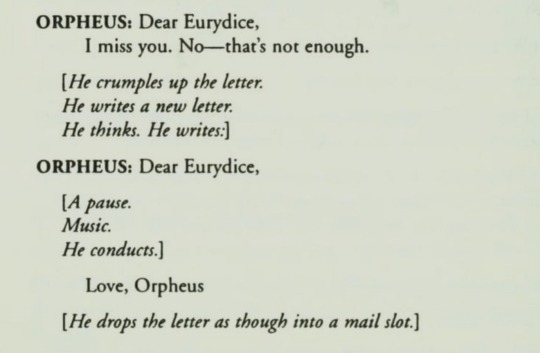

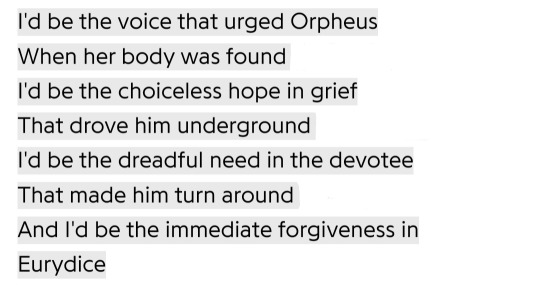
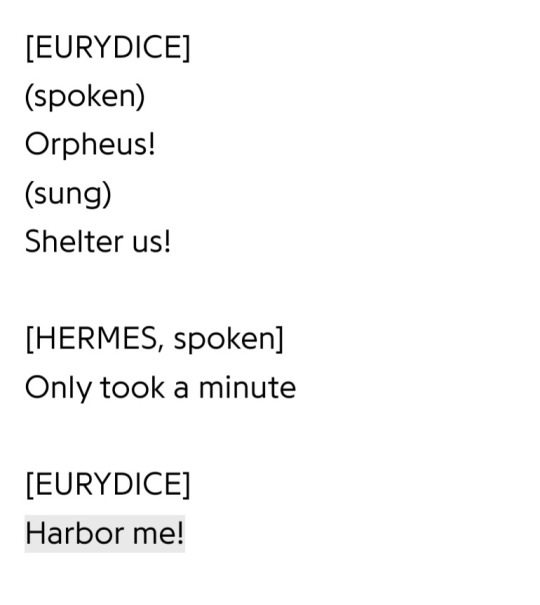

1. three moments in paris, mina loy/ 2. eurydice, sarah ruhl/ 3. orphée ramenant eurydice des enfers, jean-baptiste camille corot/ eurydice, sarah ruhl/ 4. talk, hozier/ 5. hadestown, anais mitchell/ 6. the wounded eurydice, jean baptiste camille corot
2K notes
·
View notes
Text


I remember fields of flowers. 🥀
2K notes
·
View notes
Text
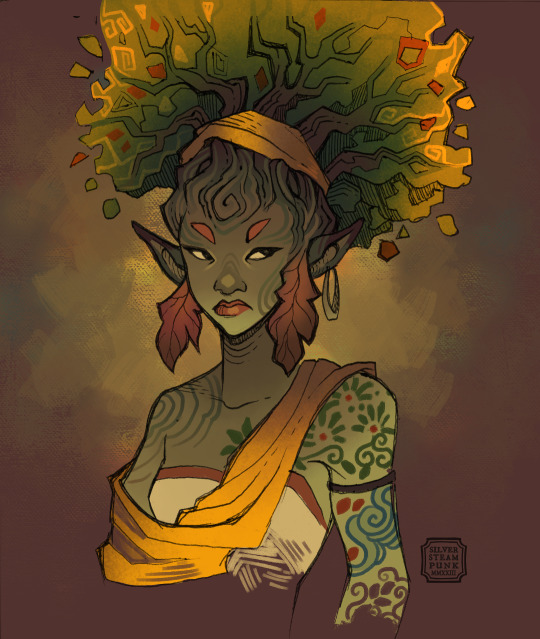
Eurydice doodle from earlier this year. I forgot I had drawn it!
1K notes
·
View notes
Text
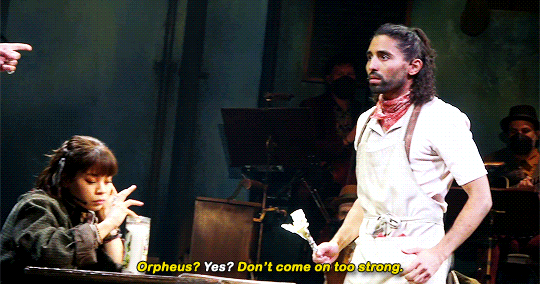
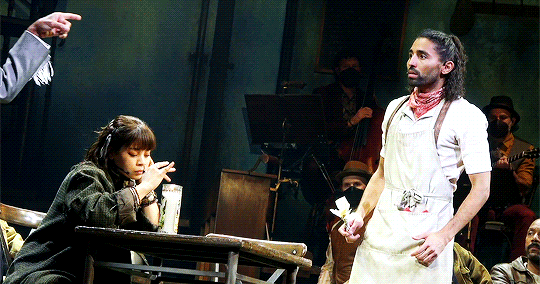
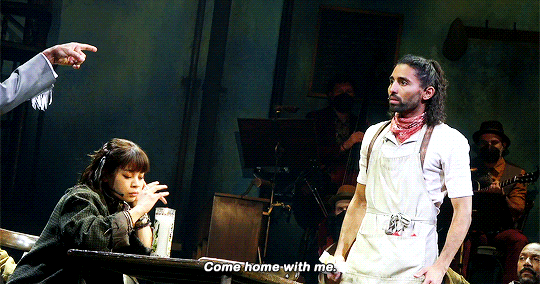
Who are you?
#broadwayedit#musicaltheatreedit#musicalgifs#hadestownedit#hadestown#hadestown the musical#hadestown broadway#orpheus#eurydice#trent saunders#eva noblezada#mine#*g#(c) starcuffedjeans#musicaledit
2K notes
·
View notes
Text


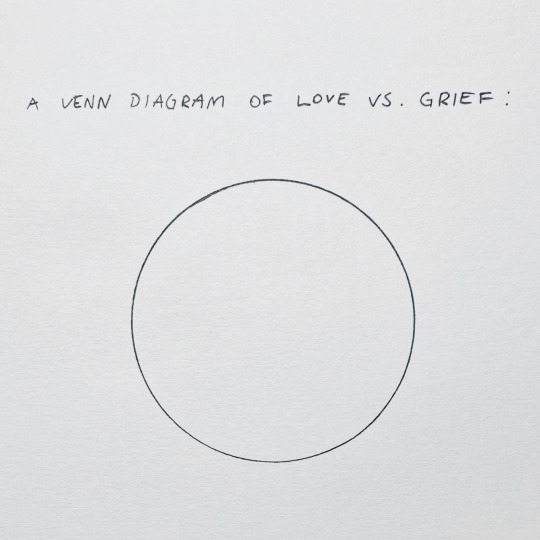





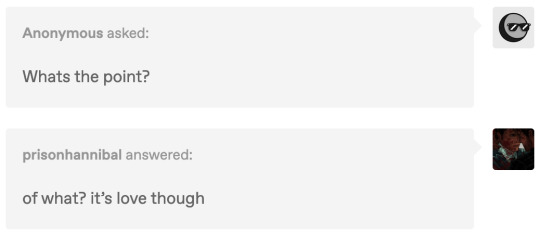


orpheus but he's sisyphus
Ovid’s The Story of Orpheus and Eurydice (tr. Rolfe Humphries) / Spirited Away dir. Hayao Miyazaki / @mag200 / Jenny Diski, “Housewife” / Franz Wright, God's Silence / Adrianne Kalfopoulou, “Poem in Pieces, a Log” / Jon Ware, I am in Eskew / Kazimierz Wierzyński, “A Word of Orphists” (tr. Czeslaw Milosz) / @prisonhannibal / Aeschylus, The Oresteia / Ocean Vuong, Eurydice
image ids under cut:
image 1: a quote from Ovid that reads: "And Orpheus received her, but one term was set: he must not, till he passed Avernus, turn back his gaze, or the gift would be in vain."
image 2: excerpt from the script of the film Spirited Away that reads: "Haku: But I can't go any farther. Just go back the way you came, you'll be fine. [highlighted] But you have to promise not to look back, not until you've passed through the tunnel."
image 3: a drawing, labeled in all-caps handwriting "a venn diagram of love vs. grief:". the drawing is a single circle.
image 4: an excerpt, highlighted and italicized, from Jenny Diski that reads: "People don't understand about repetition, do they? How it is at the heart (thump, thump, thump) of obsession; at the erotic centre (drip, drip, drip) of desire. You do, of course. Repetition is insatiability spelt sideways."
image 5: a quote from Franz Wright reading, "And let me ask you this: the dead, where aren't they?"
image 6: a quote from Adrianne Kalfopoulou in red text, reading, "Grief will keep you reaching back / for what is not there"
image 7: an excerpt from Jon Ware that reads, "Here's my question. If the ghost wants nothing more than to be witnessed, why would it appear behind you, not in front of you? The only answer I can think of is this: [underlined] it appears behind you because it already knows, to an absolute certainty, that you will have no choice but to look back."
image 8: a quote from Kazimierz Wierzyński that reads: "I understood the true fate of Orpheus, that [highlighted] love is a constant terror of loss."
image 9: a screenshot of a tumblr ask from an anonymous user who says, "What's the point?" user prisonhannibal responds, "of what? it's love though".
image 10: two lines from aeschylus reading, "Orestes: This was always going to happen. She's been dead since the beginning."
image 11: an excerpt from Ocean Vuong that reads, "Your absence has gone through me // Like thread through a needle. / Everything I do is stitched with its color."
end ids.
#web weaving#my posts#orpheus#eurydice#love#grief#mythology#poetry#ovid#spirited away#jenny diski#franz wright#adrianne kalfopoulou#jon ware#kazimierz wierzyński#aeschylus#an oresteia#ocean vuong
877 notes
·
View notes
Text
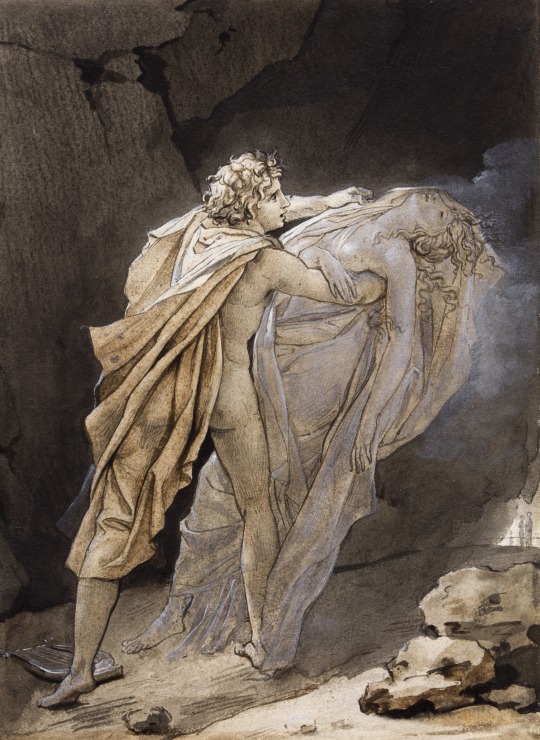
Orpheus tries to hold on to Eurydice
.c. 1791
Artist : François Gérard (1770-1837)
#françois gérard#french painter#french artist#french art#greek mythology#greek legend#orpheus#eurydice#orphée#enfers#1791
6K notes
·
View notes